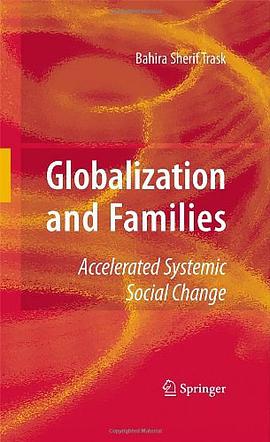

具体描述
As our world becomes increasingly interconnected through economic integration, technology, communication, and political transformation, the sphere of the family is a fundamental arena where globalizing processes become realized. For most individuals, family in whatever configuration, still remains the primary arrangement that meets certain social, emotional, and economic needs. It is within families that decisions about work, care, movement, and identity are negotiated, contested, and resolved. Globalization has profound implications for how families assess the choices and challenges that accompany this process. Families are integrated into the global economy through formal and informal work, through production and consumption, and through their relationship with nation-states. Moreover, ever growing communication and information technologies allow families and individuals to have access to others in an unprecedented manner. These relationships are accompanied by new conceptualizations of appropriate lifestyles, identities, and ideologies even among those who may never be able to access them. Despite a general acknowledgement of the complexities and social significance inherent in globalization, most analyses remain top-down, focused on the global economy, corporate strategies, and political streams. This limited perspective on globalization has had profound implications for understanding social life. The impact of globalization on gender ideologies, work-family relationships, conceptualizations of children, youth, and the elderly have been virtually absent in mainstream approaches, creating false impressions that dichotomize globalization as a separate process from the social order. Moreover, most approaches to globalization and social phenomena emphasize the Western experience. These inaccurate assumptions have profound implications for families, and for the globalization process itself. In order to create and implement programs and policies that can harness globalization for the good of mankind, and that could reverse some of the deleterious effects that have affected the world's most vulnerable populations, we need to make the interplay between globalization and families a primary focus.
作者简介
目录信息
读后感
评分
评分
评分
评分
用户评价
相关图书
本站所有内容均为互联网搜索引擎提供的公开搜索信息,本站不存储任何数据与内容,任何内容与数据均与本站无关,如有需要请联系相关搜索引擎包括但不限于百度,google,bing,sogou 等
© 2026 book.wenda123.org All Rights Reserved. 图书目录大全 版权所有




















